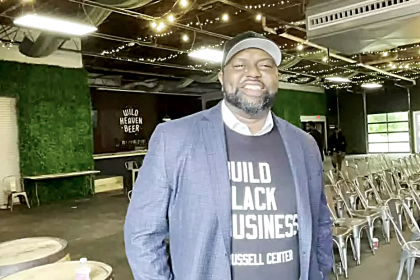
Yvette Caslin is the CEO of The Pinkprint, which helps individuals form a plan when filing taxes, build credit, develop a tax strategy for business entities and repair credit.
How did you start your journey?
I started my journey 20 years ago in media and entertainment. In 2016, I started doing a little bit of media and PR communications, just trying to try to see what would be my next step when it was time to actually make the change. In 2018, I took a leap of faith and started a financial services business. In 2020, I actually founded my business, The Pinkprint, which is a financial services firm.
I got my education in taxation, and I’m working to be a legitimately licensed tax preparer where I can represent people who are behind in their taxes or have a complex tax situation. I got my certification in 2020 and I started my licensing with the IRS in 2021.
Why is it important for consumers to learn about taxes?
Because you really work very hard for your money, and unfortunately, the middle class gets hit the most when it comes to taxation. When the Trump administration did the Tax Cuts and Jobs Act, he leveled the playing field for business owners and individuals who are 1099 employees. He leveled the playing field for them to really take advantage of taxation and actually getting these deductions and not being able to keep a lot of their own money. That’s where I come in. It’s your job to hire a professional that’s going to work with you hand in hand and make sure you plan properly and strategize properly, to get most of your money back that they’ve taken from you.
What are some important things for people to know when starting a business?
First, you need to know what is the goal and the mission of the business. The main thing is, how are you going to be doing your accounting? The biggest thing is having an accounting method. You shouldn’t mix funds with your personal account and your business, you need to have a separate bank account for that. If you’re going to be in business, get a PayPal account. Additionally, you want to know what type of entity you’re going to be. Are you going to be a single-member LLC? Will you be an S Corp, a C Corp or just be a sole proprietor where you don’t even want to bother with an LLC? You have to understand the entity that you’re in, and you want to be in an entity that is the best tax benefit to you. That information will come from hiring a tax professional, as well as having an attorney to do your paperwork properly.

















